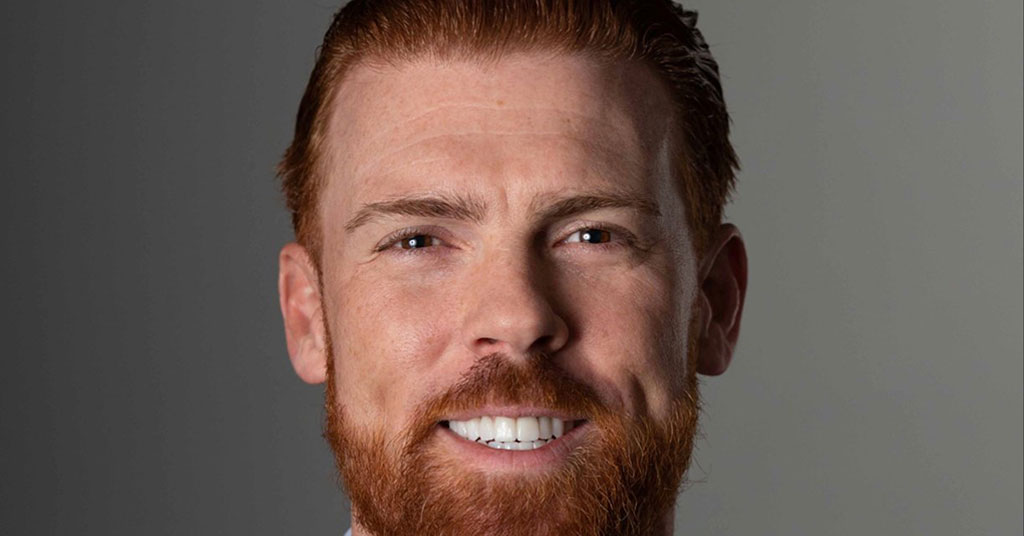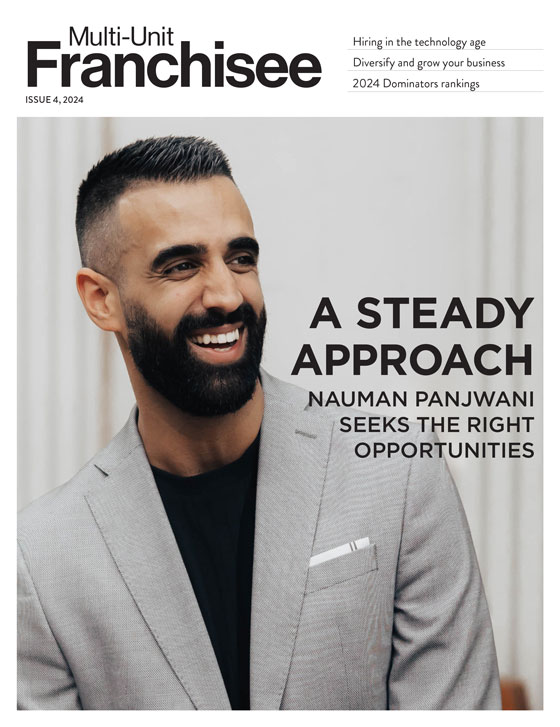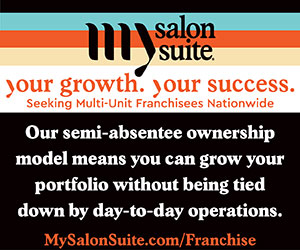Brokering Franchise Success: Founder Builds a Four-Brand Portfolio

Name: Mike James
Title: Founder/Managing Partner
Company: Guernsey Holdings
No. of units: 122 Sonic, 20 Zaxby's, 3 Take 5 Oil Change
Age: 39
Family: Married with one daughter
Years in franchising: 5.5
Years in current position: 3.5
Mike James spent his first eight professional years with Marcus & Millichap, one of the top commercial real estate investment sales brokerages in the country, before establishing a real estate brokerage company of his own five years ago. He enjoyed the experience but felt something was missing.
"I wanted to be a part of something I was passionate about and to be able to connect with others," James says. "I had experience with restaurant owners in commercial real estate and saw many examples of people realizing the American Dream. It inspired me to get more involved with the restaurant industry."
During his time as a broker, James sold approximately $8 billion in commercial real estate. He had a thorough knowledge of the value of real estate for restaurants, and he says this understanding gives him an advantage when selecting and negotiating the best locations.
"Restaurants are what I knew," he says. "It was the next logical step for me outside of real estate. It represented the lifestyle I would like to have, so why not pursue that?"
The last time Multi-Unit Franchisee magazine talked with James (Q4 2022), he had a portfolio of 87 Sonic and 40 Little Caesars locations. Little Caesars is gone, but today he is the fourth-largest operator in the Sonic system with 122 locations. He also owns 20 Zaxby's restaurants and has ventured outside the restaurant industry with three Take 5 Oil Changes. His latest endeavor is a 53-unit development deal with 7 Brew Drive-thru Coffee.
As James eyes operating more than 300 units over the next several years, he emphasizes company culture and taking care of his employees. He is personally involved in each brand's training program and prioritizes the retention of team members, referring to them as family in good times and bad.
"I pray for our entire company every night before bed because our team means the world to me," he says.
Personal
First job: Driving a delivery truck for Corner Bakery. I was fired after one month for crashing the vehicle.
Formative influences/events: My mother instilled a strong sense of confidence in me from a young age. During high school and college, I played football and developed a disciplined work ethic under the guidance of various coaches and mentors. That work ethic still serves me today.
Key accomplishments: I launched Guernsey Holdings in 2021, which has been recognized as a Top 100 franchisee from 2021-2024 and is the highest-ranked and fourth-largest operator in the Sonic brand.
Biggest current challenge: Commodity fluctuations and shifting consumer sentiment/spending habits. Over the past two years, the cost of goods from distributors has fluctuated more than the previous 10 years combined. That has resulted from the pandemic and the supply chain. It has made business a bit more difficult to operate. The supply chain is not as solid as it used to be, and commodities will shoot up out of nowhere.
Next big goal: Eclipsing 300 operating units by the end of 2027.
First turning point in your career: Early in my career at Marcus & Millichap, a large real estate investment trust, entrusted me with a significant disposition assignment as a broker. This opportunity led to my partnership with Glen Kunofsky, the top triple net lease (NNN) broker and founder of NNN Pro, a commercial real estate brokerage company. Glen profoundly affected my career by teaching me the NNN business and serving as an incredibly patient, detailed, and loyal partner.
Best business decision: The decision to acquire 21 Little Caesars locations in Michigan was led by my partner, Reed Melillo. Although we had no prior restaurant experience, we had been eager to become franchisees for several years.
Hardest lesson learned: I've been so fortunate to be surrounded by such high-quality partners. Without them, I would be nothing. Pick your partners wisely.
Work week: My daily routine starts with a 6 a.m. workout followed by meditation, a cold plunge, and walking the dogs. I'm usually in the office by around 9 a.m. I dedicate the first half of the day to strategy and deep-thinking assignments and then shift to calls, meetings, and task-oriented work in the second half. During the first five years of my career, I worked around 80 hours a week.
Exercise/workout: Weights, running, and swimming.
Best advice you ever got: Focus on what's within your control and let go of the rest. Celebrate small wins throughout the week, and make sure you're doing something you truly love. I made the shift from brokerage to the restaurant industry for this very reason.
What's your passion in business? Building amazing teams and companies and developing people are my passion. I love working with passionate, hardworking individuals. Nothing invigorates me more than seeing someone put forth unrelenting effort toward achieving a successful outcome.
How do you balance life and work? I remind myself that my job no longer requires me to sit in front of a computer for 12 hours a day. My role now is to make a handful of high-quality decisions each week. To protect my mental state, I prioritize working out, meditating, and spending quality time with my family. These are crucial for staying clearheaded. I prioritize family time over everything else.
Guilty pleasure: Panda Express (Orange Chicken), Mamba Sour Fruit Chews, and Cuban cigars.
Favorite book: Grinding it Out by Ray Kroc.
Favorite movie: "Pursuit of Happyness."
What do most people not know about you? My entire family is of British descent. My company is named after Guernsey Island, where my father was raised.
Pet peeve: Chewing with mouth open and people eating massive meals on short flights.
What did you want to be when you grew up? A professional football player.
Last vacation: Pebble Beach in June.
Person you'd most like to have lunch with: Elon Musk.
Management
Business philosophy: I am a value investor by nature, but I believe people ultimately determine the outcome. In my view, the market often overvalues assets and undervalues people.
Management method or style: I'm direct, provide a lot of autonomy, and only micromanage when necessary. I maintain a high degree of trust.
Greatest challenge: Shifting from a hard-nosed, grinding brokerage mentality to a more passive, strategic, and elevated entrepreneurial mindset.
How do others describe you? A hard charger, fair, and passionate.
Have you ever been in a mentor-mentee relationship? What did you learn? Not formally, but I've had several high-quality mentors. I've learned patience, attention to detail, the value of true partnership, and how to play the long game.
One thing you're looking to do better: One thing I'm working on is communicating my positive thoughts more frequently. I have a habit of internalizing them and don't always express my positive feedback to the team.
How you give your team room to innovate and experiment: I hate rules or guidelines. I preach innovation and experimentation in all scenarios. Innovate or die.
How close are you to operations? Very close. We meet with our operations teams multiple times a week and spend considerable time in the stores. Managing a business from an ivory tower through spreadsheets is a recipe for failure.
What are the two most important things you rely on from your franchisor? Driving revenue and controlling costs.
What you need from vendors: Consistent uninterrupted service and transparent stable pricing.
Have you changed your marketing strategy in response to the economy? How? Yes, we have. Some of our brands have shifted toward a value-based approach while others have focused on menu innovation paired with robust marketing techniques. The latter has proven to be more effective.
How is social media affecting your business? We are working on implementing a more effective internal social media strategy to enhance team connectivity. Social media needs to be a central part of all new and existing product launches; otherwise, the sales impact will be muted.
How do you hire and fire? Most of the turnover happens within the four walls of the restaurant, and we rely on our management teams to make 99 percent of the decisions regarding employees. At Guernsey Holdings, our parent company, we've had zero turnover since its inception.
How do you train and retain? Retention has always been a priority at Guernsey. I personally go through the training program for every brand we operate. We've developed a custom training program for our Sonic business that addresses those who quit within the first week. By focusing on making new hires feel welcome and getting to know them, we've significantly reduced early terminations. This approach keeps morale high and leads to reduced turnover in tenured positions.
How do you deal with problem employees? I don't really use the word "employee." I think of everyone as a team member. I rarely deal with team member issues directly. If I notice something in a restaurant that needs attention, I'll pull the appropriate manager aside and let them handle it their way. I believe in giving managers the autonomy they've earned. However, if someone crosses a line, I will address it immediately.
Fastest way into your doghouse: Blame external factors.
Bottom Line
Annual revenue: $285 million.
2024/2025 goals: Enter a chicken brand (complete), eclipse $325 million of annualized revenue (on track), and make 20 internal management promotions (on track).
Growth meter: How do you measure your growth? We focus on EBITDA and net income growth. We set out to double earnings YOY in 2024, and we accomplished that halfway through the year.
Vision meter: Where do you want to be in five years? 10 years? Initially, our goal was to own 500 restaurants by the end of 2026. However, we soon realized that the number of locations is a poor metric due to varying profitability levels--$90,000 for Little Caesars, $200,000 for Sonic, and $500,000 for Zaxby's. We shifted our focus to EBITDA, and our target for the restaurant business is to exceed $100 million in TTM EBITDA by 2027.
Do you have brands in different segments? While most of our brands are in the food and restaurant industry, we also own three Take 5 Oil Changes. A partner offered us an opportunity, and we wanted to dabble outside of restaurants. After testing the waters, we envision going into more businesses in industries other than restaurants.
How is the economy in your region(s) affecting you, your employees, your customers? We have noticed that the sales mix in our lower-income areas has shifted more in toward value over the past year.
Are you experiencing economic growth in your market? We operate in 11 different states. We are experiencing economic growth in Tennessee, Kentucky, South Carolina, Texas, and the Pacific Northwest. We aren't seeing as much growth in Louisiana and Illinois.
How do changes in the economy affect the way you do business? Inflation has had the most significant impact on the QSR business in recent years. In 2022, we experienced more than 40% food cost inflation in the Sonic brand. We then reduced margins from low double digits to low single digits for several periods. We responded immediately with an aggressive menu pricing increase, which restored margins to the low double-digit range.
How do you forecast for your business? We have a robust annual budgeting process that accounts for every cent in each of our restaurants. This annual process, combined with a multi-year, long-term plan focused on strategic M&A, development, and overall strategy, helps us stay aligned with our long-term goals.
What are the best sources for capital expansion? Unlike many of our peers, we utilized fixed-rate, aggressively amortizing debt, most of which originated in 2021. This approach has significantly deleveraged our business, allowing for aggressive investment.
Experience with private equity, local banks, national banks, other institutions? Why/why not? We've found that private equity firms typically focus on exiting an investment within five to seven years. In contrast, we are long-term investors who plan to own our businesses indefinitely as long as we believe a brand is set up for continued success. For us, selling a business usually signals a lack of confidence in that brand; we're not opportunistic sellers. My goal is for our partners' children's children to inherit this business.
What are you doing to take care of your employees? We treat our team members like family. I've written dozens of personal checks to support team members facing unfortunate life events. I personally call the families of anyone we lose, and we always contribute to funeral costs. We've also helped those who have lost their homes to fires, floods, and tornadoes. The philanthropic nature of our team is inherent. This is a passion for me, and we take it seriously. I pray for our entire company every night before bed because our team means the world to me.
How are you handling rising employee costs (payroll, minimum wage, healthcare, etc.)? These costs are part of doing business. We focus on making our people happy so that they can provide the highest level of service to our customers. We offer merit-based paths to upward mobility.
What laws and regulations are affecting your business, and how are you dealing with them? Our businesses have performed well in markets where there is minimum wage pressure. It actually helps our revenue. We don't have any restaurants in California, but the laws there would potentially be catastrophic for our business. When we buy a restaurant, it can be challenging and expensive to get approvals from the local municipality for things such as signage, retaining walls, crash enclosures, landscaping, ADA requirements, and installation of hot water heaters.
How do you reward/recognize top-performing employees? Our firm hosts a fully paid annual awards trip to a new destination each year. This past year, we stayed at the Walt Disney World Resort in Orlando. We hold an awards ceremony dinner and offer plenty of fun activities for our team members and their guests of choice. It is one of the highlights of the year for me.
What kind of exit strategy do you have in place? We are long-term investors. While I hope my family will want to run the business in the future, it's not a requirement. My daughter is only 2 years old, so it's probably a bit too early for succession planning.
Share this Feature
Recommended Reading:
| ADVERTISE | SPONSORED CONTENT |
FRANCHISE TOPICS
- Multi-Unit Franchising
- Get Started in Franchising
- Franchise Growth
- Franchise Operations
- Open New Units
- Franchise Leadership
- Franchise Marketing
- Technology
- Franchise Law
- Franchise Awards
- Franchise Rankings
- Franchise Trends
- Franchise Development
- Featured Franchise Stories
FEATURED IN

Multi-Unit Franchisee Magazine: Issue 4, 2024
| ADVERTISE | SPONSORED CONTENT |

$1,000,000
$400,000





 The multi-unit franchise opportunities listed above are not related to or endorsed by Multi-Unit Franchisee or Franchise Update Media Group. We are not engaged in, supporting, or endorsing any specific franchise, business opportunity, company or individual. No statement in this site is to be construed as a recommendation. We encourage prospective franchise buyers to perform extensive due diligence when considering a franchise opportunity.
The multi-unit franchise opportunities listed above are not related to or endorsed by Multi-Unit Franchisee or Franchise Update Media Group. We are not engaged in, supporting, or endorsing any specific franchise, business opportunity, company or individual. No statement in this site is to be construed as a recommendation. We encourage prospective franchise buyers to perform extensive due diligence when considering a franchise opportunity.